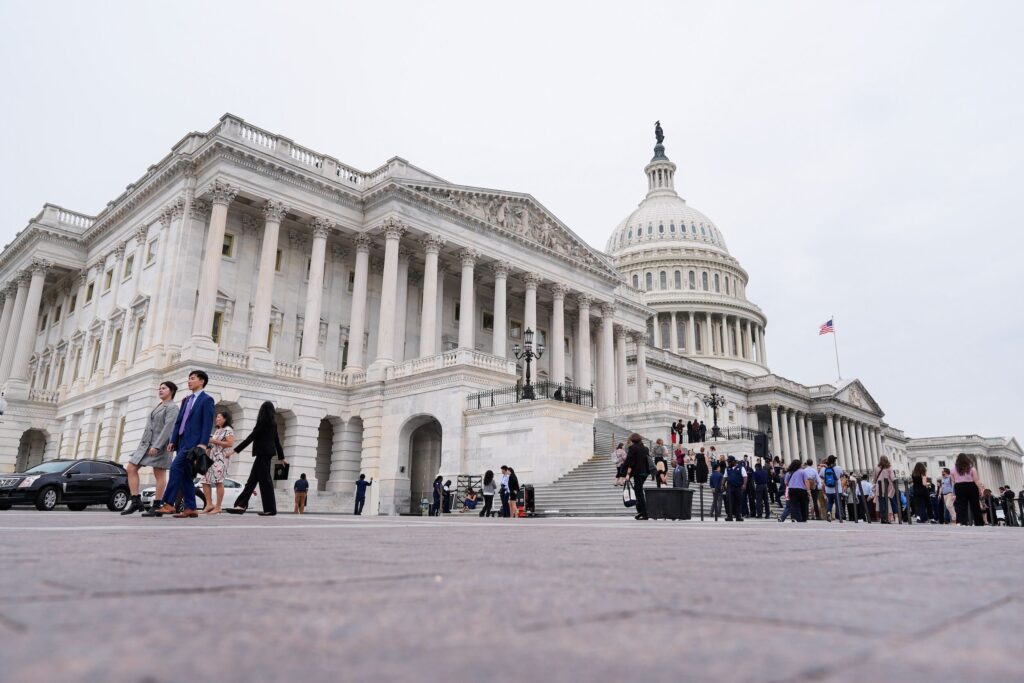A voluntary waiver to prevent suicides? Colorado bill clears committee
A bill that would allow individuals struggling with suicidal thoughts to fill out a voluntary waiver temporarily prohibiting them from purchasing firearms has cleared a Senate committee.
Senate Bill 34, sponsored by Fort Collins Democrats Sen. Cathy Kipp and Rep. Andrew Boesenecker, would allow people to voluntarily sign an electronic waiver authorizing the Colorado Bureau of Investigation to temporarily prohibit them from purchasing a firearm. The waiver would remain in effect for 30 days after being revoked to prevent impulsive decisions.
The bill also imposes a $25 fine for individuals who attempt to purchase a firearm while their waiver is active.
Supporters said it would save lives by disallowing people to access guns when they are having suicidal ideation. Critics argued that it is an overreach that would not accomplish anything — just as other laws restricting guns have failed to stop violence or save lives.
According to Kipp, the penalty has been included to ensure the is was constitutional. She said the bill was brought to her by a constituent in the mental health field and that similar bills have been passed in states like Washington, Virginia, and Utah.
“I think we all are very much aware that mental health cycles,” she said. “Sometimes, you feel better, and sometimes you feel worse, and we know that when people are feeling better, sometimes they would like to make decisions to protect themselves, frankly, from themselves at a later point in time.”
Some are skeptical the proposal would accomplish what sponsors are saying it would.
Although Mario Acevedo has lost two loved ones to gun suicides, he doesn’t think the bill would have any impact on suicide rates in Colorado.
“What about the other gun laws enacted to prevent suicide?” he asked. “The self-storage law, the three-day waiting period, the red flag laws. How well are those laws working? Not one bit. So why should we expect this bill to be any different?”
Acevedo said the bill would add more bureaucracy to the CBI, an agency already struggling to meet its workload. While he noted he was lucky not to know anyone at risk of suicide, he said that if he did, he would find the bill “extremely insulting.”
“Nothing is offered about real suicide prevention,” he said. “A loved one just signaled that they intended to kill themselves, and here you go, a $25 fine for your troubles. We can do better. Let’s give Colorado a public safety policy that actually saves lives.”
While gun owners experiencing suicidal thoughts can temporarily store their firearms at a gun store, sponsors said SB34 would protect individuals who don’t already own guns but are thinking about purchasing one to commit suicide.
According to Virginia Mack, a psychiatric nurse in Fort Collins, 70% of firearms deaths in Colorado are suicides. She spoke of a student she worked with in 2016 who had mental health and substance use problems but who, she thought, was doing considerably well — until she received a call that he had committed suicide.
“I am certain he would’ve signed up for (the waiver) since in the periods he was feeling fine, and there were many of them, he didn’t want to die by taking a gun to his head,” she said. “He would’ve used this voluntary, confidential and fully reversible option to suspend access to a firearm.”
While some might argue that someone who is truly suicidal would find another method if they couldn’t purchase a firearm, Kathy Hagen of Erie noted that only 4% of suicide attempts using methods other than firearms result in death, compared to 90% of attempts with a gun. Hagen’s friend’s father killed himself when she was young, and she said his family believes to this day that he did not want to die but had suffered a psychotic break after going off his medication.
“This was a cry for help,” she said. “The family never fully recovered from this incident. If their dad could have put himself on a do-not-sell list before this crisis occurred, I’m fairly certain he would have.”
Ian Escalante of Rocky Mountain Gun Owners argued that the true reason for the mental health crisis in America is psychotropic drugs — not guns. He called the bill another effort to chip away at peoples’ Second Amendment rights, adding that he has concerns about whether it would be as easy to rescind the waiver as the bill’s supporters say.
“We want to make sure that we find other ways to help people who are having issues with mental health other than giving the opportunity to give up their god given rights,” he said.
The bill passed on a 3-2 party line vote, with Republican Sens. Rod Pelton of Cheyenne Wells and Byron Pelton of Sterling voting against it.











